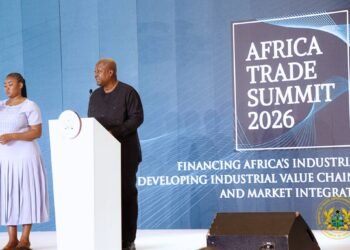Sigurd Solem, a Norwegian Petroleum Expert and a former operations manager of Maersk Directional Drilling Services has indicated that Exxon Mobil’s exit from Ghana’s upstream sector may not be dramatic.
Before its exit six months ago, ExxonMobil operated the Deep Water Cape Three Points Block with an 80 per cent stake in the block while GOIL Offshore Ghana Limited and the Ghana National Petroleum Company (GNPC) owned 5 per cent and 15 per cent stake respectively.
According to PIAC’s Semi-Annual Report, the 80 percent interest relinquished by ExxonMobil has since reverted to the State pending the necessary arrangements for re-award to a new contractor party(s).
Nonetheless, it will not be far from truth to suggest that the state anticipates foreign companies will indicate interests in the remaining shares since local companies have relatively no wherewithal to compete for stakes in this space.
Oil exploration and production is highly capital-intensive in nature, and gaining access to credit to participate is one of the challenges that local companies face.
Ghana’s upstream sector has only a few local companies participating within the sector and this has continued for years. So far, GOIL Offshore Ghana Limited is a local company that participates in the upstream sector aside Springfield Ghana.
Ghana has over the years picked up a number of extensive lessons from the Norwegian oil and gas industry, since the first collaboration with the oil-rich country in 2008- from oil revenue management to general legislations in the oil and gas industry.
“Exxon’s exit may not be dramatic. I looked up the supermajors’ activity in Norway and found the following: Exxon sold their Norwegian assets (20 assets) in 2019 to Vår Energi (ENI is a shareholder). Chevron sold their assets in 2018, [and] ENI merged their assets into Vår Energi in 2019. Also, BP merged their assets into AkerBP and now holds 30% of the company…
“The big ones are unable to deal with small projects. Today, in Norway, there are a number of small operators who are pursuing the tail end of previously large fields. For Norway, this has so far, been a good thing, longer lasting fields and production, more jobs and more tax revenue.”
Sigurd Solem, Norwwegian petroleum expert
After the exit of the supermajors in Norway, “a number of small oil companies who are also working on renewables [took advantage of the situation]. Many of these operators are only 10-12 people and they were previous employees of bigger operators. They formed a team, went to some of the investment companies who then funded them to get started.”
He indicated that one of the biggest influences on starting up like this is hinged on “political and fiscal stability, and Ghana should be able to offer that.”
Although Norway varies greatly from Ghana in so many respects including: the level of development; the system of governance; institutional capacity; and various macroeconomic factors, Ghana’s oil and gas sector can become the beacon of hope and the preferred example for oil industries in the sub-region.
This notwithstanding, efforts to improve contributions to this end have been fraught with huge challenges. For instance, receivables based on approved contract sums by the Petroleum Commission to the Local Content Fund amounted to US$4.2 million, down from an amount of US$4.5 million recorded for the same period in 2020.
After operationalizing the local content fund (LCF) in January last year, the Petroleum Commission of Ghana underscored the purpose of the Fund to inter alia provide financial assistance to indigenous Ghanaian companies operating in the oil and gas sector. The fund enjoins oil companies to contribute a 1 per cent contract sum deduction into the fund for the purposes highlighted.
However, the Public Interest Accountability Committee (PIAC) noted that the shortfall in the LCF was due to challenges including the impact of the COVID-19 pandemic on collections and non-compliance by contractors and subcontractors citing the Fiscal Stabilisation Clause in petroleum agreements.
Since the inception of the Fund last year, stabilisation clause has been repeatedly cited as the problem impeding the collection of the local content fund. Should this continue, the local content fund will turn out to be non-functional at worse, and may lose its significance.
The extensive participation of local companies is very crucial to the progress of the country’s oil and gas sector, going forward, considering the threats of the ongoing energy transition.
This is the time to explore ways to empower local companies to participate in the upstream oil sector and the country cannot simply fail at this.
Besides, the establishment of the National Development Bank Ghana can be used to provide support for local oil companies to participate in the upstream petroleum sector.






















